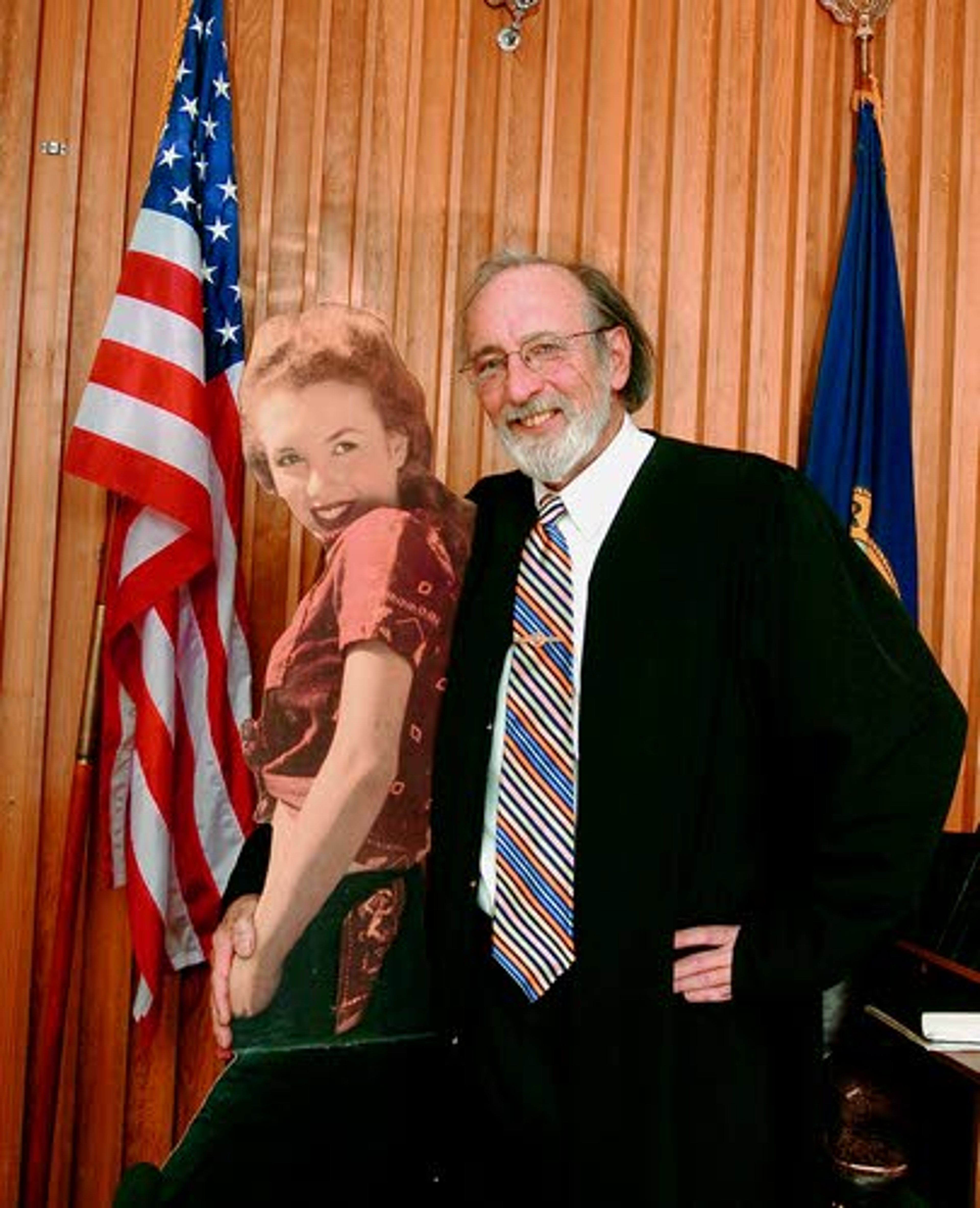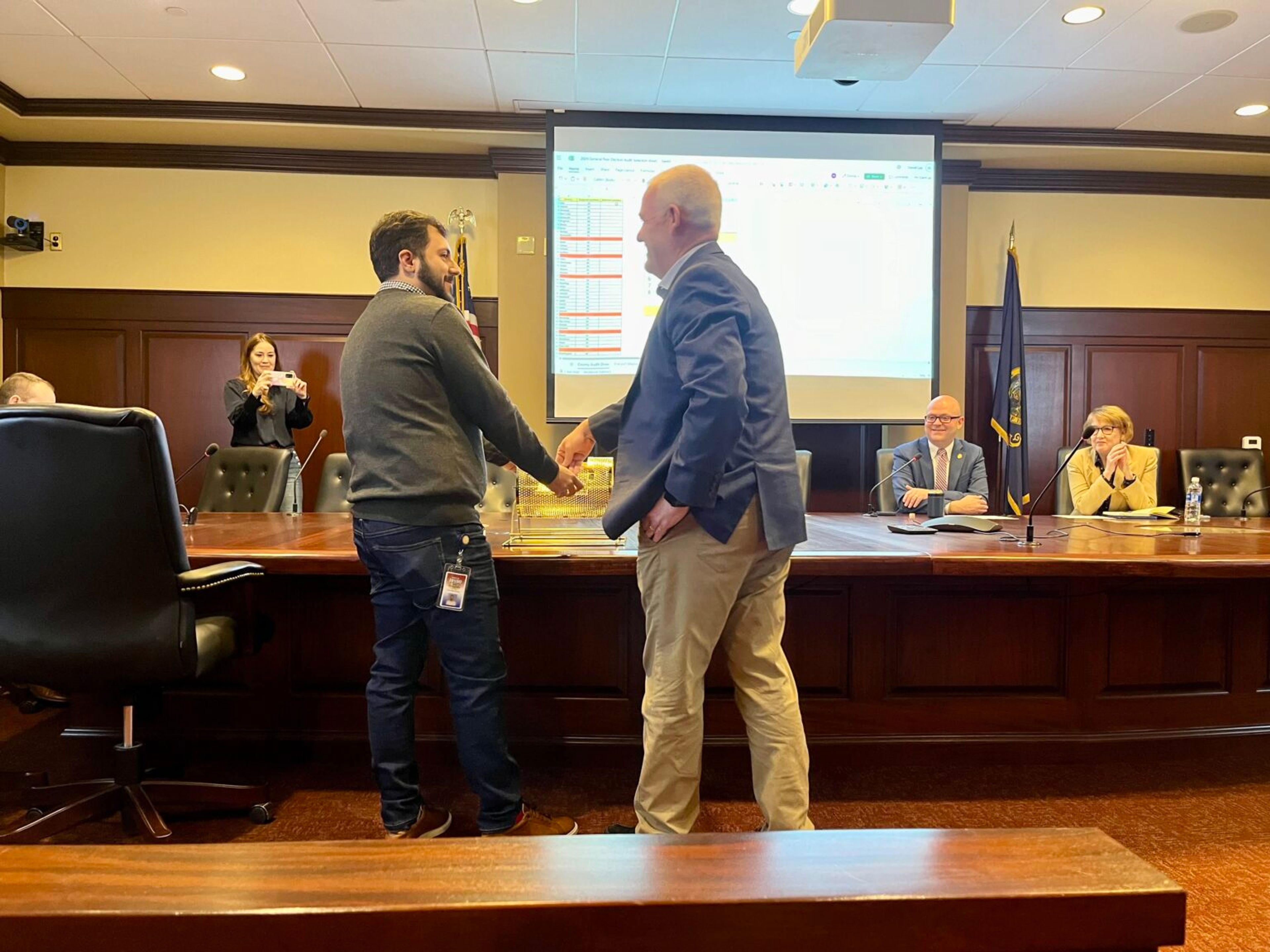MOSCOW - After 23 years as Latah County's magistrate, William Hamlett has too many stories to count.
"You get one a day," Hamlett said, surrounded by his partially dismantled office on Tuesday, his last official day. "You have to have a pretty good sense of humor, and a pretty good sense of knowing that people are fallible."
Hamlett, 66, has probably seen a lot of fallibility in his time in Moscow, first as a bartending law student, then as county prosecutor for a dozen years, and finally during his stint on the bench.
And just like in his days behind the John's Alley bar, he has his "regulars," whom he calls good, hard-working people who just happen to get into trouble once in a while.
"I had a woman in court this morning that I've been dealing with for years," he said. "It was kind of like having a black-sheep family member in court. It gets to the point where you just talk to them like they're family members."
Moscow attorney John Judge replaces Hamlett starting this morning. But he will be back next summer when Judge goes to state judges' school, and he'll occasionally act as a magistrate in other counties.
Hamlett was an only child born in Paris,Texas, in 1942. His father, a doctor in the Navy, was killed in Korea when he was called back into the service. He and his mother, a public health nurse, then moved to Nevada.
After earning an English degree at the University of California-Berkeley, he joined the Marine Corps for five years, spending a year and a half in Vietnam.
The GI Bill allowed him to continue his education. Like many military men at the time, he chose law school at the University of Idaho.
He's been in this college town ever since.
"Moscow is one of those towns that crushes ambition," he joked.
As a magistrate, Hamlett has had an uncommon vantage point on his county and its criminal activity over the decades. But he said more enforcement, not more crime, is largely responsible for putting more people in jail.
"I don't think people have gotten any worse than they were 25 years ago. We just put more police on the street and catch more of them."
He doesn't decry that enforcement culture, saying society has clamored for more cops on the street. But he added he has tried to mitigate its consequences in his courtroom.
Hamlett said he doesn't generally set high bonds, or any bond at all. "Most people show up," he said of those he's trusted to honor their court dates.
And he's tried not to be "oppressive" with sentencing, which can set people up for a fall if it's too harsh, he said.
"Most people, once they get caught, and they have the embarrassment of getting caught, that's the rehabilitative punishment they need, more than anything else."
While Hamlett has tried to keep both humor and humanity in his legal dealings with the community, he said domestic cases are always the most tough.
"Those are the ones you always think of over and over and over," he said. "Whether you did the right thing."
He did tell one story, where he convinced a husband in a divorce case to admit at trial that he'd been cheating on his wife. That was all the woman wanted to hear, Hamlett said, acknowledgment from her husband that he'd done something wrong.
"The woman on the stand just heaved a sigh of relief, and we settled the case about 20 minutes later."
Exposing people's hidden agendas can be the shortcut to justice in such cases, he said. And that notion of "justice" itself is elusive, he hastened to add.
"Most people don't come to court for justice. The come to court to get their way. The court system, I think, teaches them that their way is not always justice."
---
Mills may be contacted at jmills@lmtribune.com or (208) 883-0564.









